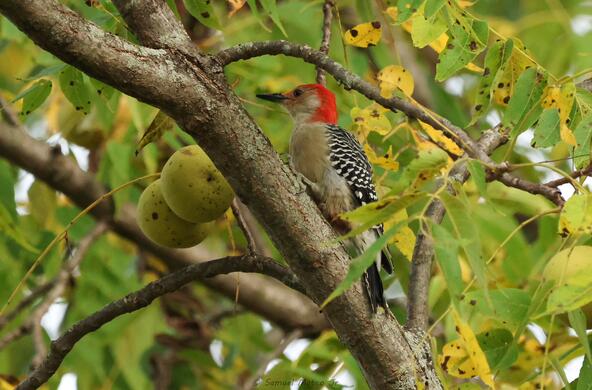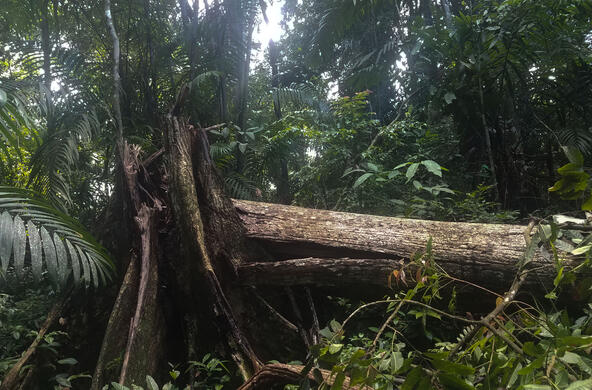For fear of neighborhood child-molesters, drug pushers, tick-borne disease, and melanoma, parents across the nation are more comfortable knowing their children are playing computer games and surfing the internet than spending time outdoors. Even programs of environmental education, often offered by not-for-profit partners of local school systems, have forsaken the concept of a field trip—driven indoors by fear of liability for accidents in the field and by competing budget and curriculum activities, including athletics.
In the United Kingdom, grade-school kids were able to identify more characters from Pokémon cards than of British wildlife. Less than 40 million of the U.S. population participates in camping as a family recreation or vacation activity, with the trend downward each year. Meanwhile, more than 100 million watch the Super Bowl.
We are rapidly becoming a species of dim light, with children rarely exposed to the wonders beneath each square foot of fallen debris in a forest, each rock we might turn over in a local stream, each lizard we might watch in a desert shrub land. Bird-watching is often touted as the largest recreational activity in America, but too often bird club meetings are devoid of Millennials.
Meanwhile, the prevalence of myopia has increased from 25% to 41.6% during the past 30 years. Some work shows the rising proportion of young students who develop nearsightedness may be linked to the short time that many of them spend in bright sunlight each day.[1] Sunlight also allows the body to synthesize vitamin D, which we must otherwise to get from vitamin pills.
For me, there is no comparison between hearing about ecology in the classroom and doing it outside. I worry how we will maintain a citizenship with an appreciation of the value of nature, given our success in divorcing our youth from experiences in nature. It is no wonder that voters believe that the human species is disconnected from and even transcendent over nature, believing we will survive on account of our ability to engineer artificial solutions to what nature has provided for eons.
We will not preserve what we do not know.
References
Balmford, A., L. Clegg, T. Coulson, and J. Taylor. 2002. Why conservationists should heed Pokémon. Science 295: 2367.
Dadvand, P., M.J. Nieuwenhuijsen et al. 2015. Green spaces and cognitive development in primary schoolchildren. Proceedings of the National Academy of Sciences, US 112: 7937-7942.
Haskell, D. 2012. The Forest Unseen; a year’s watch in nature. Penguin Books, New York.
Jones, L.A., L.T. Sinnott, D.D. Mutti, G.L. Mitchell, M.L. Moeschberger, and K. Zadnick. 2007. Parental history of myopia, sports and outdoor activities, and future myopia. Investigative ophthalmology and Visual Science 48: 3524-3532.
Louv, R. 2005. Last Child in the Woods: Saving Our Children from Nature-Deficit Disorder. Algonquin Press, Chapel Hill, NC.
Pergams, O.R.W. and P.A. Zaradic. 2008. Evidence for a fundamental and pervasive shift away from nature-based recreation. Proceedings of the National Academy of Sciences, US. 105: 2295-2300.
Vitale, S., R. Sperduto and F.L. Ferris. 2009. Increased prevalence of myopia in the United States between 1971-1972 and 1999-2004. Archives of Ophthalmology 127: 1632-1639.
[1] In the interest of full disclosure, I have been very nearsighted since the first grade, which is clearly linked to the genetics of our family.







